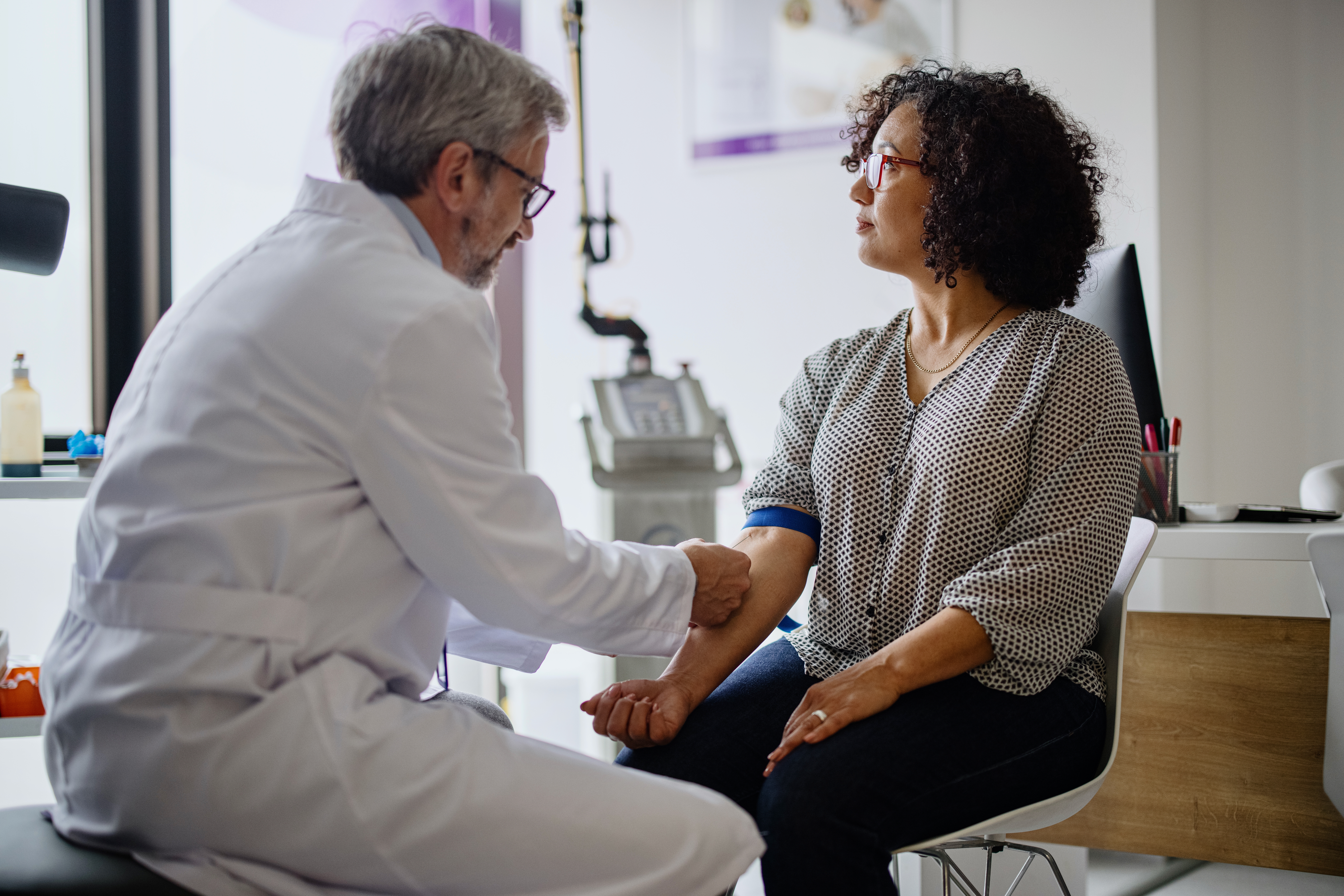Outdated Women's Healthcare: How It's Holding Us Back
Breaking the Cycle: Why Outdated Healthcare Hurts Women's Potential
Introduction: A Healthcare System Stuck in the Past
Let's be honest, how often do you feel like the healthcare system truly *gets* you, especially as a woman? We're talking about more than just annual check-ups. It's about a deep understanding of the unique biological, emotional, and societal challenges women face throughout their lives. Sadly, for many, the answer is "not often enough." The outdated healthcare model, often rooted in a male-centric perspective, continues to hold women back in their careers, relationships, and overall well-being. It's time to challenge the status quo and demand a system that prioritizes women's specific needs.
The $60 Billion Opportunity: Recognizing Women's Health as a Market Force
Recent discussions, like those at the CNBC Changemakers Summit in Los Angeles featuring Midi Health founder and CEO Joanna Strober and Frida founder and CEO Chelsea Hirschhorn, highlight a critical shift. The business of women’s health is not just a niche market; it's a burgeoning industry projected to reach a staggering $60 billion in the coming years. This isn't just about money; it's about recognizing the immense economic power of women and their willingness to invest in solutions that address their unique health challenges.
"Trained to Suffer": Why Women Need to Stop Accepting the Status Quo
Joanna Strober, whose company focuses on perimenopause and menopause treatments, succinctly captured a prevailing sentiment: women "have been trained to suffer for far too long." Think about it. How many times have you heard phrases like "it's just hormones" or "it's all in your head" when expressing legitimate health concerns? This ingrained societal expectation to endure discomfort and downplay symptoms is a major obstacle to women's health and, consequently, their overall potential.
Frida's Revolution: Disrupting the Motherhood Myth
Chelsea Hirschhorn's journey began with a stark realization. After being "totally disillusioned" by the discrepancy between the idealized marketing of motherhood and the messy reality, she founded Frida. Her initial success with the "NoseFrida SnotSucker" wasn't just about creating a helpful product; it was about acknowledging the unvarnished truth of parenthood and empowering parents with effective solutions. This same principle applies to all aspects of women's health – we need honest conversations and practical support.
The Generational Divide: Lessons from BabyCenter's Past, Shaping the Future
A Look Back: Investing in Early Parenthood Information
Twenty-five years ago, Joanna Strober invested in a company called BabyCenter. While providing resources for new parents was innovative for its time, it also exposed gaps in the broader landscape of women’s health. Today, with a deeper understanding of women’s needs across their lifespan, we can build upon these early efforts to create a more comprehensive and personalized healthcare experience.
Building on Past Success: Towards a More Holistic Approach
The success of platforms like BabyCenter highlighted the need for accessible and reliable information. But in today's world, it's not just about information; it's about personalized care, convenient access to specialists, and breaking down the stigma surrounding women's health issues.
The Impact on Careers: Unaddressed Health Issues and Lost Productivity
Consider the impact of unmanaged menopause symptoms on a woman's career. Hot flashes, sleep disturbances, and brain fog can significantly impair productivity, leading to missed opportunities and even career setbacks. Similarly, chronic conditions like endometriosis or PCOS, often dismissed or misdiagnosed, can cause debilitating pain and fatigue, affecting a woman's ability to perform at her best. The economic cost of these unaddressed health issues is immense, both for individual women and for businesses as a whole.
The Mental Health Component: The Emotional Toll of Ignored Symptoms
It's not just about physical symptoms; it's about the emotional toll of feeling dismissed, invalidated, or unheard by healthcare providers. This can lead to increased anxiety, depression, and a sense of helplessness. When women feel like their concerns are not taken seriously, they may be less likely to seek help in the future, creating a vicious cycle of neglect and suffering.
Challenging the Male-Centric Model: Moving Beyond the "Default" Patient
Historically, medical research and treatment protocols have often been based on the male body as the "default" patient. This has resulted in a significant gap in our understanding of women's health, leading to misdiagnosis, ineffective treatments, and a general lack of personalized care. We need to actively challenge this bias and prioritize research that specifically addresses the unique biological and hormonal differences between men and women.
Technology to the Rescue: Telehealth and Personalized Care
The Rise of FemTech: Addressing Specific Women's Health Needs
The rise of "FemTech" – technology-driven solutions focused on women's health – is offering a much-needed alternative to the traditional healthcare model. Telehealth platforms, wearable devices, and personalized apps are empowering women to take control of their health and access specialized care from the comfort of their own homes. These innovations are particularly valuable for women in rural areas or those with limited access to healthcare facilities.
Personalized Care: Tailoring Treatments to Individual Needs
One-size-fits-all healthcare simply doesn't work for women. Personalized care that considers individual hormonal profiles, lifestyle factors, and specific health concerns is crucial for achieving optimal outcomes. Technology can play a vital role in gathering data, analyzing patterns, and tailoring treatments to meet the unique needs of each woman.
The Role of Education: Empowering Women with Knowledge
Knowledge is power. By educating women about their bodies, their health risks, and their treatment options, we can empower them to advocate for themselves and make informed decisions about their care. This includes providing accessible and reliable information about topics like menstruation, contraception, fertility, pregnancy, menopause, and sexual health.
Building a Supportive Community: Connecting Women with Shared Experiences
Often, the most valuable support comes from connecting with other women who understand what you're going through. Online communities, support groups, and mentorship programs can provide a safe space for women to share their experiences, ask questions, and find encouragement. Knowing that you're not alone can make a huge difference in navigating the challenges of women's health.
The Employer's Responsibility: Investing in Women's Health for a More Productive Workforce
Companies have a vested interest in investing in the health and well-being of their female employees. Providing comprehensive healthcare benefits that cover women's specific needs, offering flexible work arrangements to accommodate health appointments, and creating a supportive workplace culture can significantly improve employee morale, productivity, and retention. It's not just the right thing to do; it's a smart business decision.
Changing the Narrative: Shifting from "Suffering in Silence" to Open Dialogue
We need to break the silence surrounding women's health issues. Open and honest conversations about menstruation, menopause, and other topics that have traditionally been considered taboo can help to normalize these experiences and encourage women to seek help without shame or embarrassment. This requires a cultural shift, where women feel empowered to speak up about their health concerns and demand the care they deserve.
A Call to Action: Demanding Better Healthcare for Women
It's time for a change. It's time to demand better healthcare for women. This means advocating for increased research funding, pushing for policies that prioritize women's health, and supporting companies and organizations that are dedicated to improving the lives of women. Each of us has a role to play in creating a healthcare system that truly understands and supports the unique needs of women.
Conclusion: Empowering Women Through Comprehensive Healthcare
The outdated healthcare model is a significant barrier to women's progress. By recognizing the economic power of women's health, challenging the "trained to suffer" mentality, embracing technological advancements, and fostering open dialogue, we can create a healthcare system that truly empowers women to thrive in all aspects of their lives. The future of women's health is not just about treating symptoms; it's about supporting their overall well-being and unlocking their full potential.
Frequently Asked Questions
1. Why is women's health often considered an "outdated" idea?
Historically, healthcare has been male-centric, with research and treatment often based on the male body as the default. This has led to a lack of understanding and attention to the unique biological, hormonal, and societal factors impacting women's health, leaving many women feeling dismissed or underserved.
2. How does the lack of adequate women's healthcare affect their careers?
Unaddressed health issues like menopause symptoms, endometriosis, or PCOS can significantly impact productivity, leading to missed opportunities, career setbacks, and increased stress. The physical and emotional toll of these conditions can make it difficult for women to perform at their best in the workplace.
3. What role does technology play in improving women's healthcare?
Technology offers personalized care, convenient access, and breaks down the stigma around sensitive health issues. Telehealth platforms, wearable devices, and specialized apps offer a user-friendly alternative to the traditional healthcare model, giving women more control and making it easier to access quality healthcare, especially for women in rural areas.
4. What can individuals do to advocate for better women's healthcare?
You can advocate by educating yourself and others, supporting organizations dedicated to women's health, pushing for policies that prioritize women's needs, and openly discussing your health concerns with healthcare providers and your community. Speaking up and demanding better care can make a significant difference.
5. What is FemTech, and why is it important for women's health?
FemTech encompasses technology-driven solutions focused on women's health, like apps for tracking menstrual cycles, telehealth platforms for accessing specialized care, and wearable devices for monitoring fertility. FemTech helps bridge gaps in traditional healthcare by offering personalized, accessible, and convenient solutions tailored to women's unique needs, contributing to better health outcomes.


